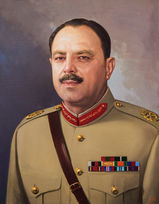Ayub Khan was born on May 14, 1907, in Rihana near Haripur district that is located in North West Frontier province (now Khyber Pakhtunkhwa) of Pakistan. As far as his family background is concerned, he belonged to the Tareen tribe of Pakhtoon ethnicity. His father was a Risaldar-Major in the British Army. After completing his primary education, Ayub Khan got enrolled in the Aligarh Muslim University but left his studies incomplete and was accepted in the Royal Military Academy Sandhurst. Ayub’s performance in Sandhurst was exemplary and he won several scholarships. After the completion of training, he got commissioned in the Indian Army in 1928. He fought at different fronts during World War II, first as a Major and then Colonel. During the communal riots of 1947, he was assigned to assist General Pete Rees in the Punjab Boundary Force. At the time of Independence, Ayub Khan opted to join the Pakistan Army, where as a Brigadier, he was the senior-most Muslim officer. In 1951, he was raised to the status of a four-star General and was appointed as the first local Commander-in-Chief of the Pakistan Army. [1] Ayub’s performance in Sandhurst – was exemplary
| Title | Description |
|---|---|
| Personal | |
| Name: | Mohammed Ayub Khan |
| Famous As: | Politician & Army General |
| Nationality: | Pakistan |
| Residence: | Islamabad, Pakistan |
| Education: | Aligarh Muslim University & Royal Military College & Sandhurst |
| Religion: | Islam |
| Profession: | Politician & Army Officer |
| Awards : | Nishane-e-Pakistan Yellow Crescent & Hilal-e-Pakistan Order of the Crown Member British Empire (MBE) |
| Born | |
| Date: | 14 May 1907 |
| Place: | Rehana, Haripur District of North-West Frontier Province, British Indian Empire (now in Khyber Pakhtunkhwa, Pakistan) |
| Family | |
| Children: | Gohar Ayub Khan & Akhtar Ayub Khan & Begum Nasim Aurungzeb |
| Died | |
| Date: | 19 April 1974 |
| Rest Place: | Islamabad, Pakistan |
| Career | |
| Political Party: | Pakistan Muslim League |
| Serve As: | 2nd President of Pakistan |
| Prime Minister : | None |
| Succeeded by : | Yahya Khan |
| Prime Minister : | None |
| Succeeded by : | Yahya Khan |
| Proceeded by: | Iskander Mirza |
| Time Period : | 27 October 1958 – 25 March 1969 |
| Member of the National Assembly | |
| Ministry : | Minister of Defence |
| In office: | 28 October 1958 – 21 October 1966 |
| Preceded by : | Ayub Khuhro |
| Succeeded by : | Vice-Admiral Afzal Rahman Khan |
| Minister of the Interior: | 23 March 1965 – 17 August 1965 |
| Preceded by : | K. Habibullah Khan |
| Succeeded by : | Ali Akbar Khan |
| In office: | 28 October 1958 – 21 October 1966 |
| Preceded by : | Ayub Khuhro |
| Succeeded by : | Vice-Admiral Afzal Rahman Khan |
| Minister of the Interior: | 23 March 1965 – 17 August 1965 |
| Preceded by : | K. Habibullah Khan |
| Succeeded by : | Ali Akbar Khan |
| In Office | |
| Role: | Commander in Chief of Pakistan Army |
| Dates: | 16 January 1951 – 27 October 1958 |
| Preceded By: | General Douglas Gracey |
| Succeeded By: | General Muhammad Musa |
| Details | |
| Service/branch : | British Indian Army & Pakistan Army |
| Years of service : | 1928–1958 |
| Rank : | Field Marshal |
| Unit : | 1st Battalion (now 5th Punjab), 14th Punjab Regiment |
| Commands: | Deputy Chief of Army Staff Adjutant General, Army GHQ GOC, Pakistan Eastern Command 14th Army Division, Dacca Waziristan Brigade, British Indian Army |
| Battles/wars : | 1936–39 Waziristan campaign & World War II & Burma Campaign & Indo-Pak War of 1965 |
| Military awards : | Hilal-e-Jurat |
| Service/branch : | British Indian Army & Pakistan Army |
| Years of service : | 1928–1958 |
| Rank : | Field Marshal |
| Unit : | 1st Battalion (now 5th Punjab), 14th Punjab Regiment |
| Commands: | Deputy Chief of Army Staff Adjutant General, Army GHQ GOC, Pakistan Eastern Command 14th Army Division, Dacca Waziristan Brigade, British Indian Army |
| Battles/wars : | 1936–39 Waziristan campaign & World War II & Burma Campaign & Indo-Pak War of 1965 |
| Military awards : | Hilal-e-Jurat |

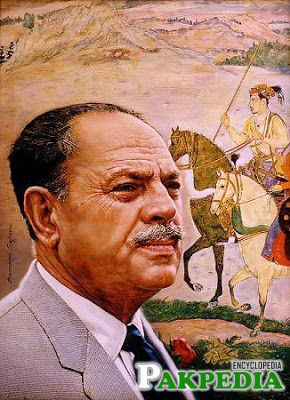
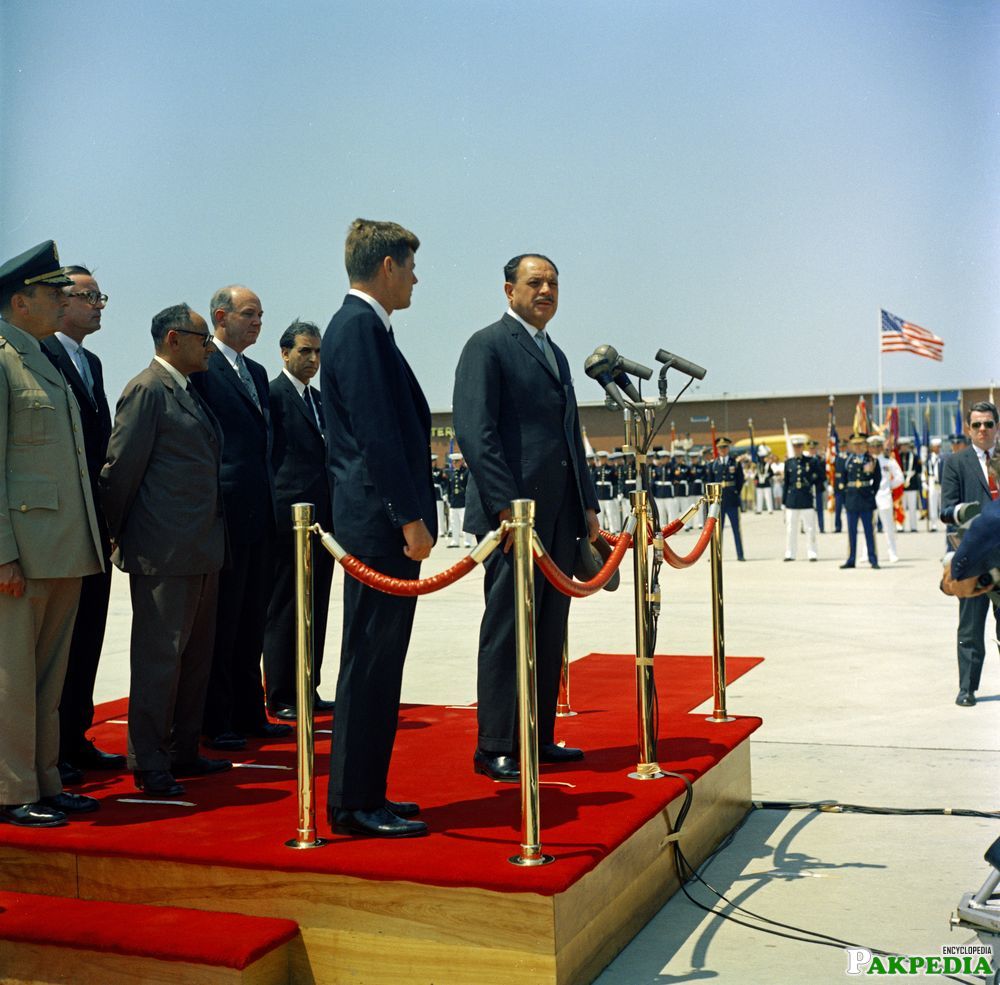
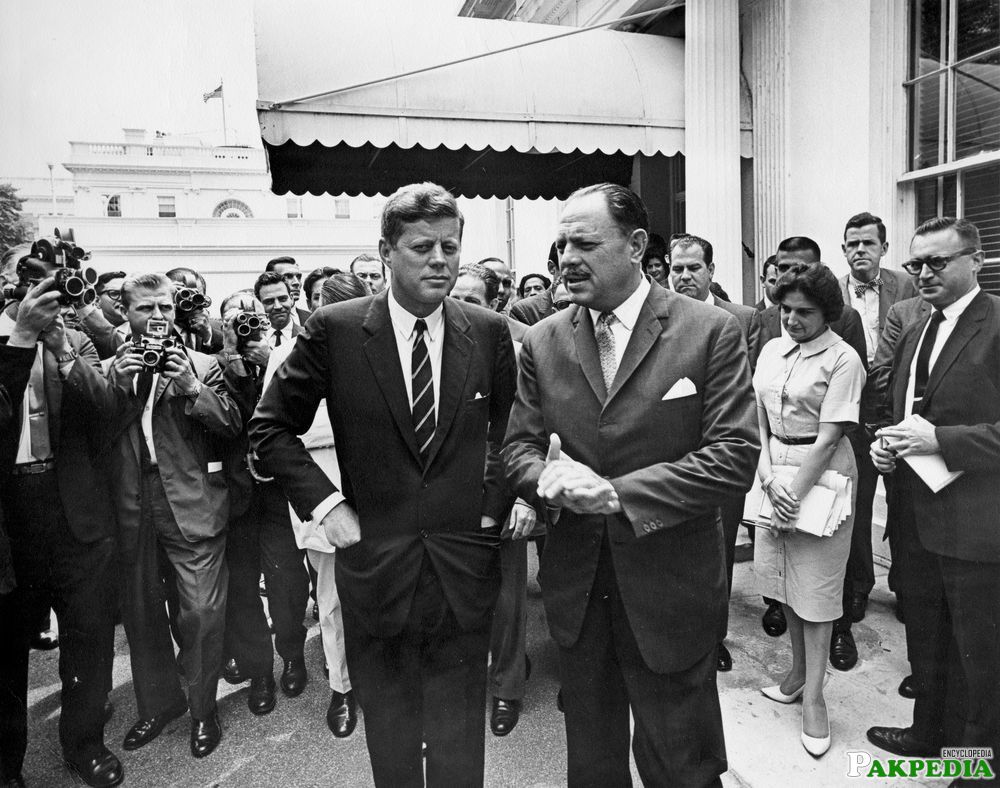
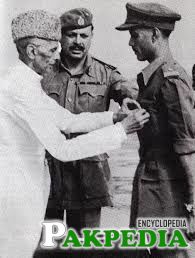
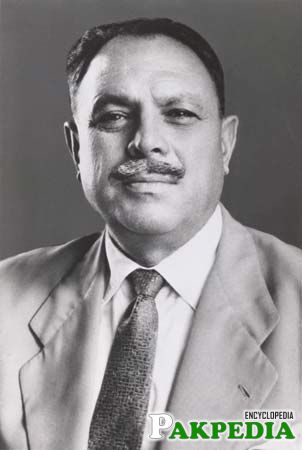
Table of Contents
About
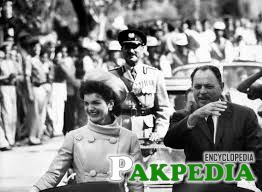
Early Life Education
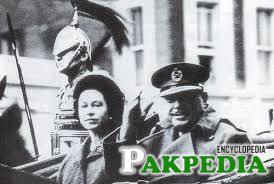
According to Ayub, his father had the greatest influence on his character, outlook, and attitude towards life. For his basic education, he was enrolled in a school in Sarai Saleh, which was about 4 miles from his village. He used to go to school on a mule’s back. Later he was shifted to a school in Haripur, where he started living with his grandmother. As a child he was interested in playing kabaddi, gulli danda, marbles and hockey. After passing his Matriculation Examination in 1922, Ayub was sent to Aligarh University where he spent four years. However, before appearing in his B. A. exams, he was selected for the Royal Military College at Sandhurst. He sailed for England in 1926. [2] his father had the greatest influence – his character
Army Career
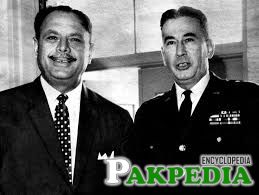
Ayub Khan started his career as an army officer in the British Army and served on many fronts. On the eve of partition, he chose to serve under the banner of a Muslim state i.e. Pakistan. He became the first C-in-C of Pakistan’s Army as well as its first CMLA, appointed by Sikander Mirza. He was also elected to serve in the public office of presidency. He gave a Pakistan a constitution and a few important reforms that were never implemented. Many of the historians and political analysts consider him responsible for the dismemberment of East Pakistan. After a long illness, he breathed his last on April 19, 1974. [3] he chose to serve under banner – a Muslim state On behalf of his extraordinary performance in the Sandhurst Academy, he was inducted as a commissioned officer in 1928 in the British India army. He served the military on various fronts i.e. Waziristan war (1936-39) and World War II on Burma front (1944-1945) being two of them. When the partition plan was declared, Ayub Khan was one of those senior Muslims officers who opted for Pakistan. He was among the ten most senior officers of Pakistan. In 1951 he became the first native C-in-C of Pakistan, succeeding General Douglas Gracy. He was not appointed the C-in-C on behalf of his seniority rather on the perception that he was totally an apolitical military officer. Later events proved that perception to be wrong. [4] he was inducted as commissioned – officer in 1928
Ayub’s appointment as the C-in-C became the incident which he had never thought to materialize at least in that life and provoked the latent talent of statesmanship in Ayub. He, with the ambition to rule the country, started to take interest in state politics. It was Ayub, on whose suggestion, Liaquat Ali, the, then, Premier of Pakistan stretched the hand of friendship towards U.S.A. Actually; Ayub Khan presented the shortage of arms and armaments in a very alarming situation for the security of the country and compelled Liaquat Ali to approach USA for the acquisition of munitions. In such a way, he got succeeded in establishing the relation between U.S.A and Pakistan, which was actually a relation between G.H.Q and Pentagon. In order to execute his plans, he considered it necessary to take the senior most bureaucracy into his confidence and made them realize that the politicians were not worthily to rule the country. Till then, the bureaucrats had also been tired of their ineligible and inefficient ‘’Bosses’’. Together with Ayub Khan, they entered into a secret understanding and allegiance and determined to ‘save’ there country from the clutches of uneducated and ill-mannered landed aristocracy. [5] Ayub Khan presented shortage – arms armaments
Military Takeover
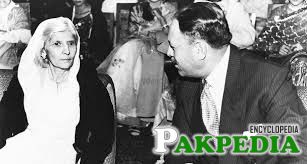
The first time military was directly involved in politics of the country was when Ayub Khan, a serving Commander-in-Chief, was inducted into Muhammad Ali Bogra’s Federal Cabinet in 1954, and was given the portfolio of Defense. As Commander-in-Chief and Defense Minister, Ayub Khan played a key role in negotiations concerning Pakistan’s entry into United States’ sponsored military alliances, C. E. N. T. O. and S. E. A. T. O. On October 7, 1958, Iskander Mirza enforced the first Martial Law in Pakistan with the help of Ayub Khan. Ayub Khan was designated as the Chief Martial Law Administrator. However, the two leaders couldn’t work together for long. Ayub Khan snatched away Mirzas’ powers and assumed charge as the President of Pakistan, in addition to his role as Chief Martial Law Administrator. Later on he gave himself the rank of Field Marshal.Most people in Pakistan welcomed Ayub Khan’s takeover because they were sick and tired of the political instability that had racked the country since its birth in 1947. Immediately after assuming his new responsibilities, Ayub tried to wipeout corruption and get rid of several social problems the country was facing. All these steps enhanced Ayub’s popularity among the masses. However, he was conscious of the fact that he could not rule under military cover for long and thus appointed a Constitutional Commission headed by Justice Shahab-ud-din. On Ayub’s instructions, the report presented by the Commission on May 6, 1961, was examined by many committees, modified, and was finally given the shape of a Constitution. [6] Most people in Pakistan welcomed – Ayub Khan’s
Martial Law Lifted
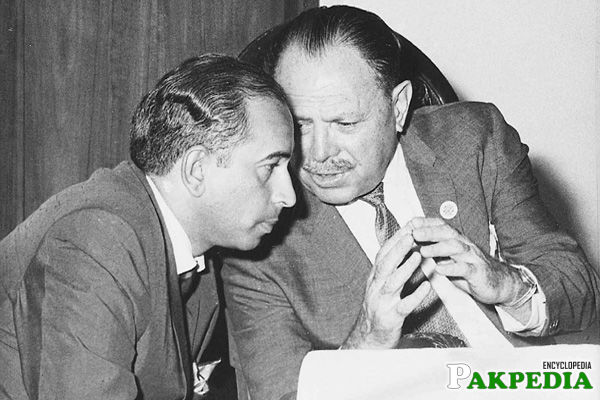
On June 8, 1962, Martial Law was lifted from Pakistan and the new Constitution was introduced. According to this new Constitution, Presidential form of government and the principle of Basic Democracy were introduced. The imposition of the Constitution made no change in the powers of Ayub Khan and he remained President even under the new setup. Presidential elections were held in 1965. The Combined Opposition Party nominated Fatima Jinnah as their candidate in the election but Ayub Khan managed to sweep the polls. His critics consider rigging as the chief cause of his victory as they believe that Fatima Jinnah secured fewer votes than her popularity, which was quite visible during her public meetings before the election. However, another factor considered for her defeat was that the franchise was limited in the election. Masses only had a chance to turn up in the public meetings but had no right to vote. [7] Martial Law was lifted new – Constitution introduced
Ayub Khans Era
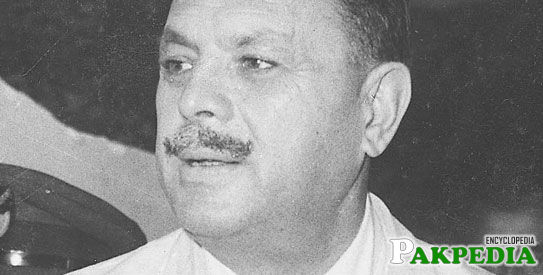
Ayub Khan’s era is known for the industrialization in the country. He created an environment where the private sector was encouraged to establish medium and small-scale industries in Pakistan. This opened up avenues for new job opportunities and thus the economic graph of the country started rising. He also tried to raise the education standards of the country by introducing educational reforms. He was the first Pakistani ruler who attempted to bring in land reforms but the idea was not implemented properly. Labor, law and administrative reforms were also introduced during his regime. Ayub Khan also initiated Family Laws in the country. He planned a new city and moved the capital from Karachi to Islamabad in 1962.[8] Ayub Khan’s era is known for – the industrialization Every thing was moving in the right direction for Ayub Khan till the start of the Indo-Pakistan War of 1965. The performance of the Pakistani army was good but the war caused a rapid decline of the country’s economy. He is also criticized his role at the Tashkent Declaration. Many believe that he negated the victory on the battlefield with a defeat at the negotiating table. His right-hand man, Zulfiqar Ali Bhutto, also turned against him and launched his own party, the Pakistan Peoples Party, with the aim to remove Ayub from power. The Awami League under Sheikh Mujib-ur-Rahman started propagating his rule as pro West Pakistan and claimed that his policies had snatched away the Bengali’s rights. The rest of the political parties formed an alliance, the Democratic Action Committee, with a one-point agenda, i.e. the removal of Ayub Khan’s government. [9] The performance of the Pakistani- army was good
Ministry of Defense
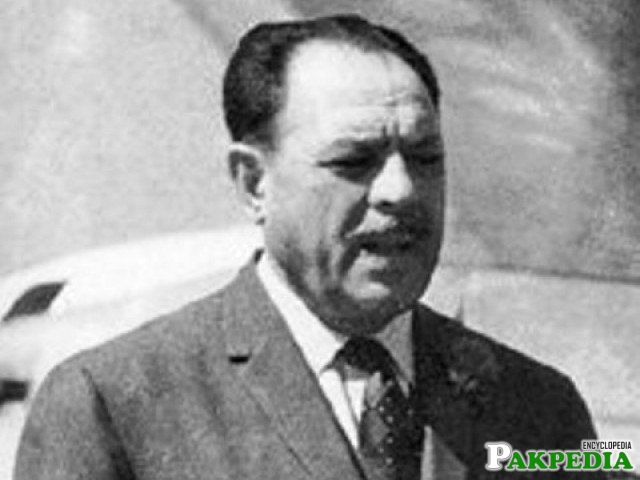
In 1954, he was assigned with an extra charge of the Ministry of Defense, which he held for almost a year i.e. 1954-55. Politically the country seemed to be very unstable but behind the curtain, the establishment was tightly holding the reins of the administrative machinery and the state was far from collapse or civil war. Ayub supported not only the acts of Ghulam Muhammad, who dismissed many ministries, but also backed the illegal and immoral acts of Sikandar Mirza. Under the commandment of Sikandar Mirza, he abrogated the constitution of 1956 and promulgated Martial law in the country on 7th October, 1958. Soon he dismissed the president on 27th October, 1958 and became the CMLA of Pakistan.[10] he assigned extra charge of – Ministry of Defense
Ayubs policies
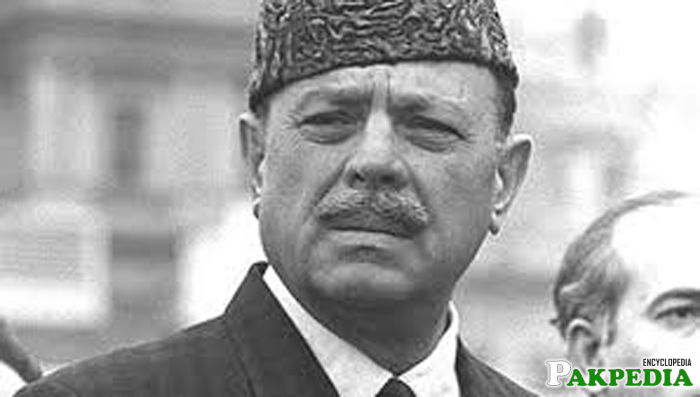
In addition, Ayub’s policies of concentrating political power in his own hands, his control over the press and media, imposing state of emergency in the country, and his interference in religion were also responsible for his downfall. Adding insult to injury, Ayub Khan decided to celebrate a decade of his rule in 1968 and made exaggerated claims about the development in the country.In 1969, Ayub opened negotiations with different political powers excluding Bhashani and Bhutto. But under severe pressure of the agitating forces, Ayub handed over control of Pakistan to Commander-in- Chief General Yahya Khan, who was the President’s most loyal lieutenant and was promoted on behalf of his loyality to the president by over ruling the set rules of promotion. [11] Ayub opened negotiations with – political powers
Anti-Ayub Movement
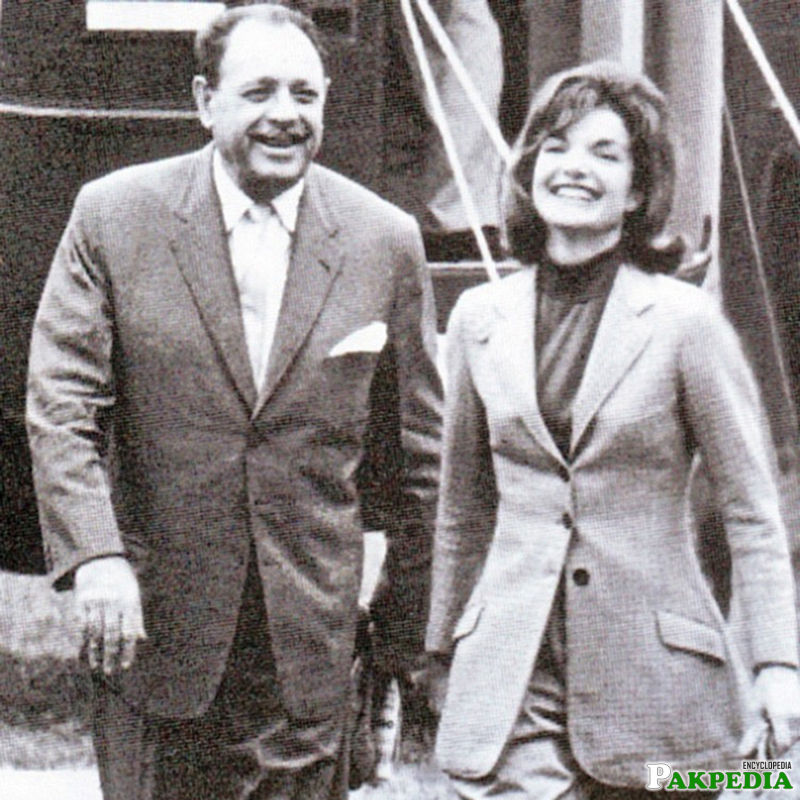
By the end of 1968, the public resentment against the Ayub’s regime touched a boiling point and an anti-Ayub movement was launched by the urban-middle class; including students, teachers, lawyers, doctors, and engineers. The Joint Labor Council called for a labor strike. Demonstrations and agitation swept the whole country. Law and order broke down and Ayub was left with no other option but to step down. Angry protesters took their demonstrations in streets in Sindh and slogans were chanted against President Ayub.Fatima Jinnah won the landslide voting but Ayub Khan won the elections through the Electoral College.During this time, Ayub Khan exploited the intelligence community to tape politicians telephone and monitor their gatherings for his own advantage. For that purpose, the Military Intelligence became extremely active during the presidential elections keeping politicians in mass surveillance and while Intelligence Bureau taped telephone recordings rather than keeping their work nation’s defence and security. This was the first time in the nation’s history that intelligence community had directly interfered in the national politics, and intelligence community continued this role in successive years.It was reported that the elections were widely rigged by the state authorities and machinery under the control of Ayub Khan and it is believed that had the elections been held via direct ballot, Fatima Jinnah would have won. The Electoral College consisted of only 80,000 Basic Democrats, who were easily manipulated by President Ayub Khan and bitterly won the elections with 64%. The election did not conform to international standards per many journalists of the time and many saw the results with great suspicions. [12] Demonstrations and agitation swept – whole country
Death and legacy
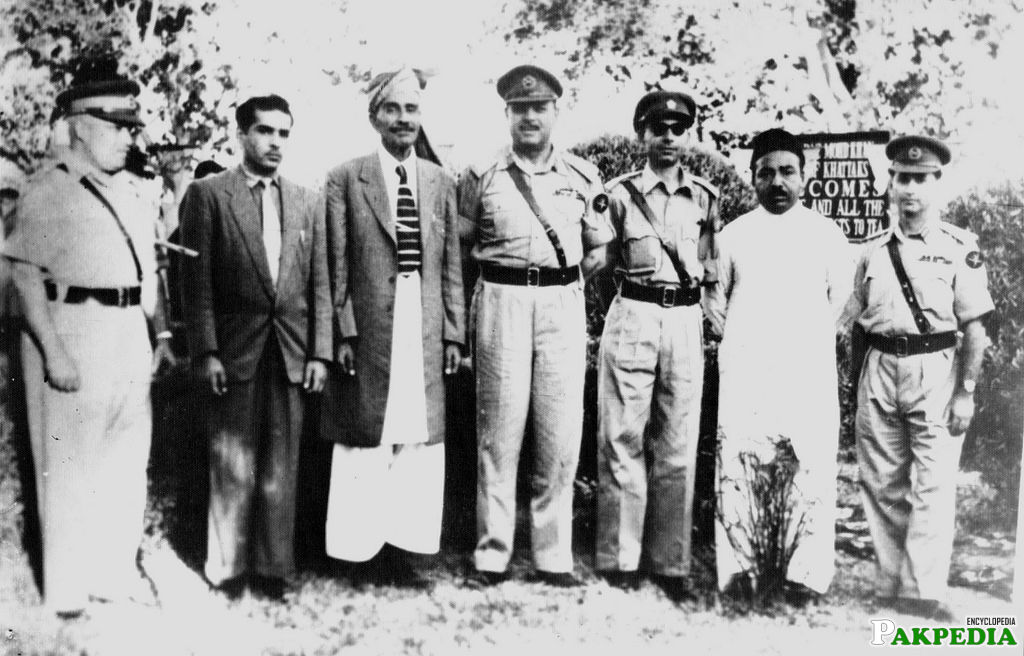
After his death, his family members became active in national politics in 1990s till present; however, his family members and sons have been subject of controversies since then. His son, Gohar, is an active member of conservative PML(N) and was the Foreign Minister in Sharif ministry in 1990s but was removed due to his controversial statements without authorization in regards to India.His daughter Begum Nasim Aurangzeb remained inactive in politics and was married to Miangul Aurangzeb, the Wali of Swat. [13] his family members became – in national politics
